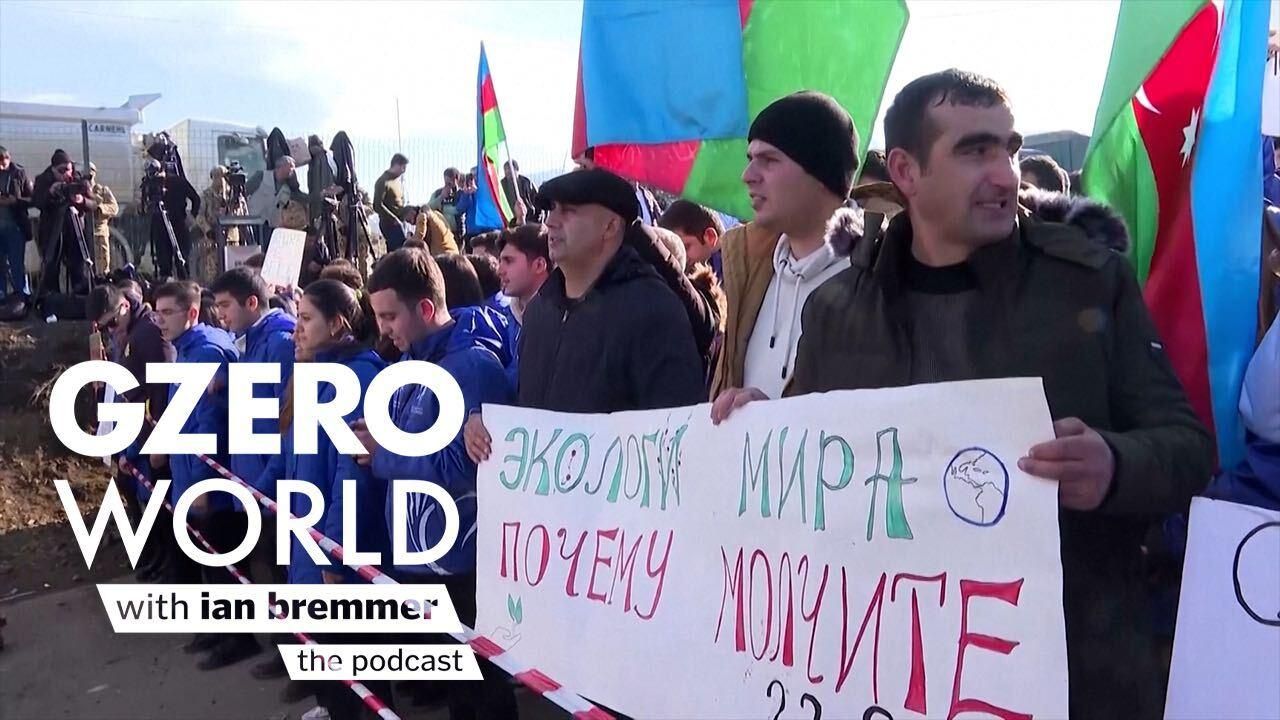GZERO World with Ian Bremmer Podcast
December 23, 2022
Listen: The people of the small Armenian enclave known as Nagorno-Karabakh have no way to get out. Recently, the long-simmering conflict in Nagorno-Karabakh has once again heated up with Armenia accusing Azerbaijan of blocking the only road that connects the disputed region with Armenia. The Azeris deny this and blame Russian peacekeepers. There are extremely heated opinions on both sides to this issue. Regardless of where the blame lies, the humanitarian risks to the region are growing. 30,000 kids cannot go to school as roads and gas have been cut off.
Food can't be brought in because the airport is closed. In a special edition of the GZERO World podcast, Ian Bremmer speaks to Ruben Vardanyan, who last month became state minister in charge of Nagorno-Karabakh, which the Armenians refer to as Artsakh.
Vardanyn discusses the blockade and reality on the ground, his region's hope for democracy, and the history of Artsakh's 30-year struggle to break free of Azerbaijan, whose government does not recognize the territory as independent. Before the fall of the Soviet Union, people living in the Nagorno-Karabakh Autonomous Oblast voted in a referendum to become free from the Azerbaijan Soviet Republic. Now, Russian peacemaking forces won't commit to staying very long in the region, and the European Union and the US have called for an end to the blockade. How will a resolution be reached, and what impact might this have on the Armenia/Azerbaijan peace agreement?
Subscribe to the GZERO World Podcast on Apple Podcasts, Spotify, Stitcher, or your preferred podcast platform, to receive new episodes as soon as they're published.From Your Site Articles
- What We’re Watching: Kenya’s new leader inaugurated, conflict flares between Armenia and Azerbaijan ›
- What We’re Watching: Bidding farewell to a queen, mass graves in Kharkiv, Pelosi in Armenia ›
- The Graphic Truth: How do Azerbaijan and Armenia stack up? ›
- What's happening in Nagorno-Karabakh? ›
- Armenia, Azerbaijan & the Nagorno-Karabakh crisis that needs attention - GZERO Media ›
- Armenia’s capital reels from the aftermath of Nagorno-Karabakh & Russia-Ukraine wars - GZERO Media ›
More For You
Bad Bunny during the Super Bowl LX halftime show press conference at Moscone Center.
Kirby Lee-Imagn Images
100 million: The number of people expected to watch the Super Bowl halftime performance with Bad Bunny, the Puerto Rican superstar and newly minted Album of the Year winner at the Grammys.
Most Popular
Think you know what's going on around the world? Here's your chance to prove it.
- YouTube
An imminent US airstrike on iran is not only possible, it's probable.
Americans are moving less — and renting more. Cooling migration and rising vacancy rates, especially across the Sunbelt, have flattened rent growth and given renters new leverage. For many lower-income households, that relief is beginning to show up in discretionary spending. Explore what's changing in US housing by subscribing to Bank of America Institute.
© 2025 GZERO Media. All Rights Reserved | A Eurasia Group media company.
